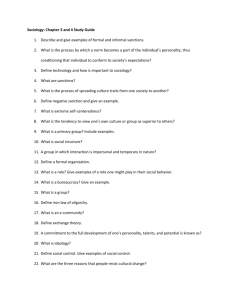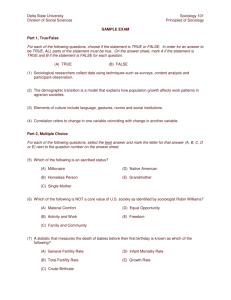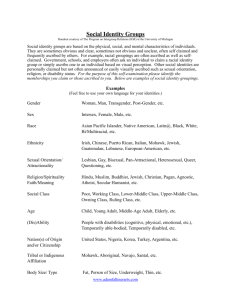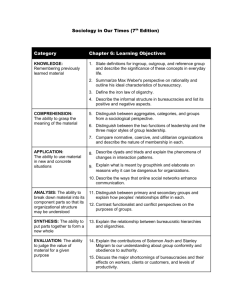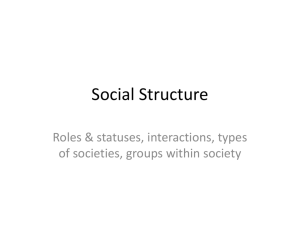Sociology Chapter One Study Guide
advertisement
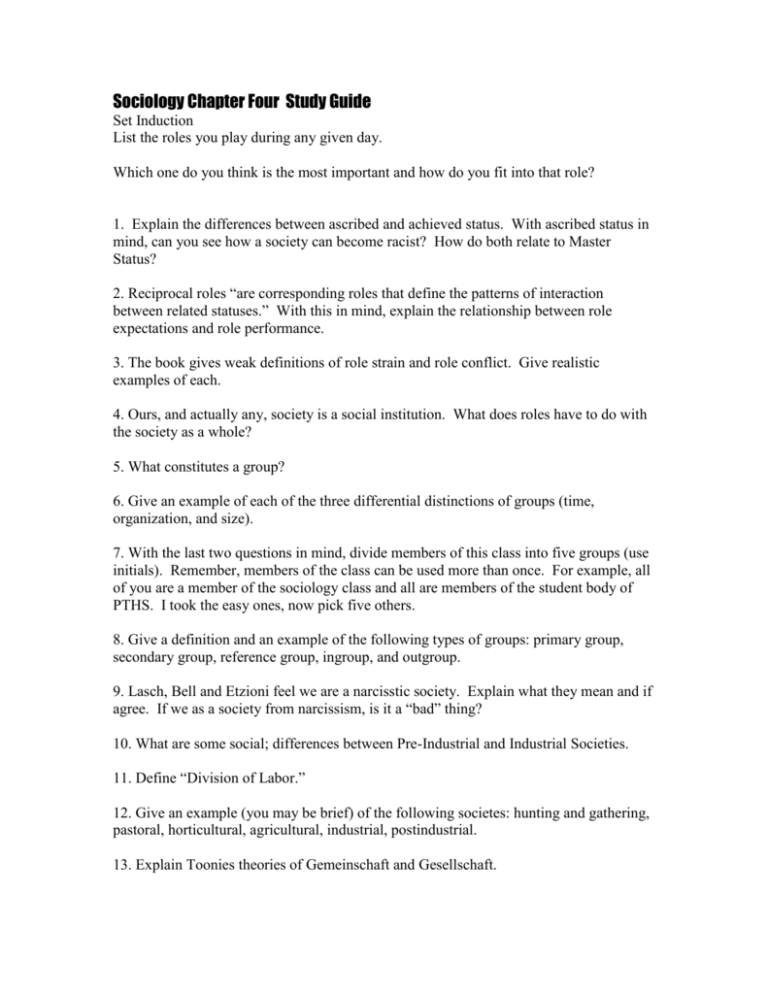
Sociology Chapter Four Study Guide Set Induction List the roles you play during any given day. Which one do you think is the most important and how do you fit into that role? 1. Explain the differences between ascribed and achieved status. With ascribed status in mind, can you see how a society can become racist? How do both relate to Master Status? 2. Reciprocal roles “are corresponding roles that define the patterns of interaction between related statuses.” With this in mind, explain the relationship between role expectations and role performance. 3. The book gives weak definitions of role strain and role conflict. Give realistic examples of each. 4. Ours, and actually any, society is a social institution. What does roles have to do with the society as a whole? 5. What constitutes a group? 6. Give an example of each of the three differential distinctions of groups (time, organization, and size). 7. With the last two questions in mind, divide members of this class into five groups (use initials). Remember, members of the class can be used more than once. For example, all of you are a member of the sociology class and all are members of the student body of PTHS. I took the easy ones, now pick five others. 8. Give a definition and an example of the following types of groups: primary group, secondary group, reference group, ingroup, and outgroup. 9. Lasch, Bell and Etzioni feel we are a narcisstic society. Explain what they mean and if agree. If we as a society from narcissism, is it a “bad” thing? 10. What are some social; differences between Pre-Industrial and Industrial Societies. 11. Define “Division of Labor.” 12. Give an example (you may be brief) of the following societes: hunting and gathering, pastoral, horticultural, agricultural, industrial, postindustrial. 13. Explain Toonies theories of Gemeinschaft and Gesellschaft. 14. Define Weber’s model of Bureaucracies. How is PTHS one for me and for you? 15. Explain the good and bad of bureaucracies in your answer, make sure to cover the iron law of oligarchy and Parkinson’s Law. 16. How do social networks work on a sociological level? What are the benefits to group behavior and the pitfalls towards group membership? 17. Explain the differences between Exchange, Conflict, Cooperation, and Accommodation.
